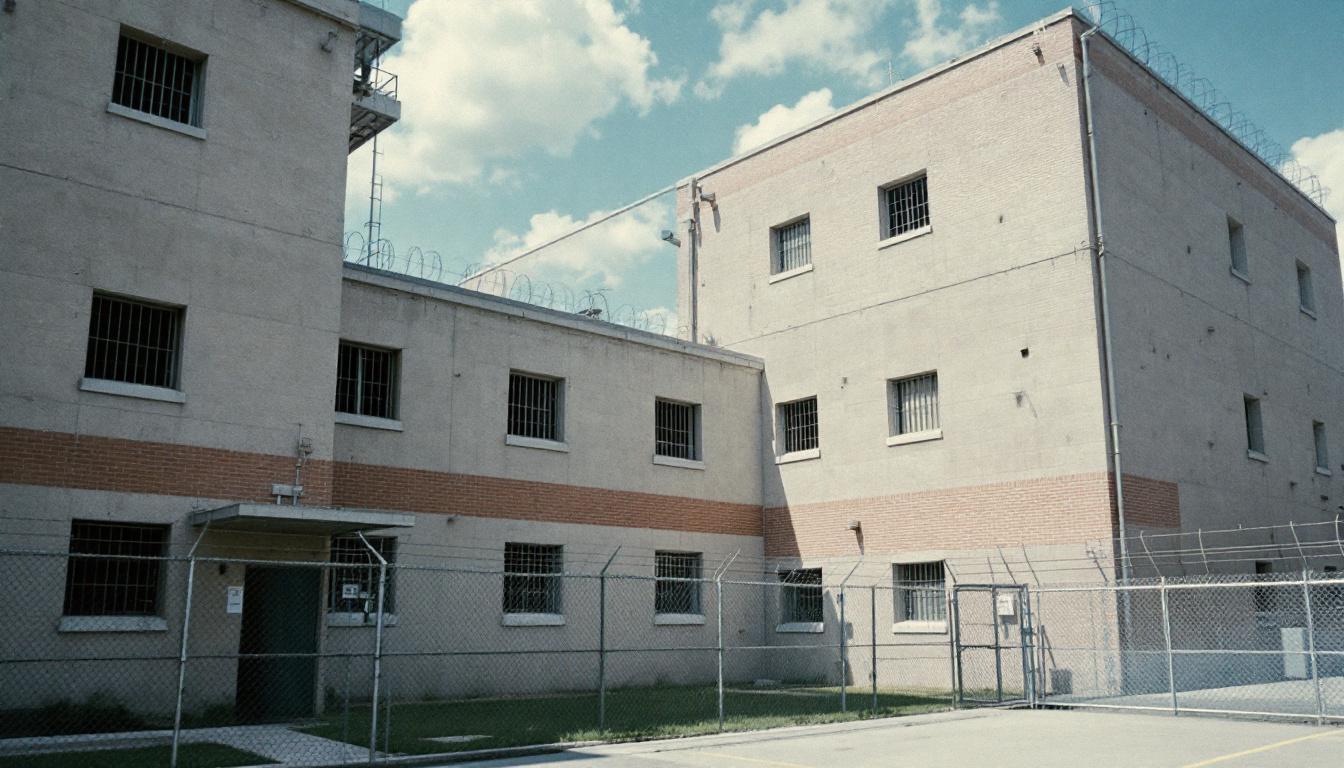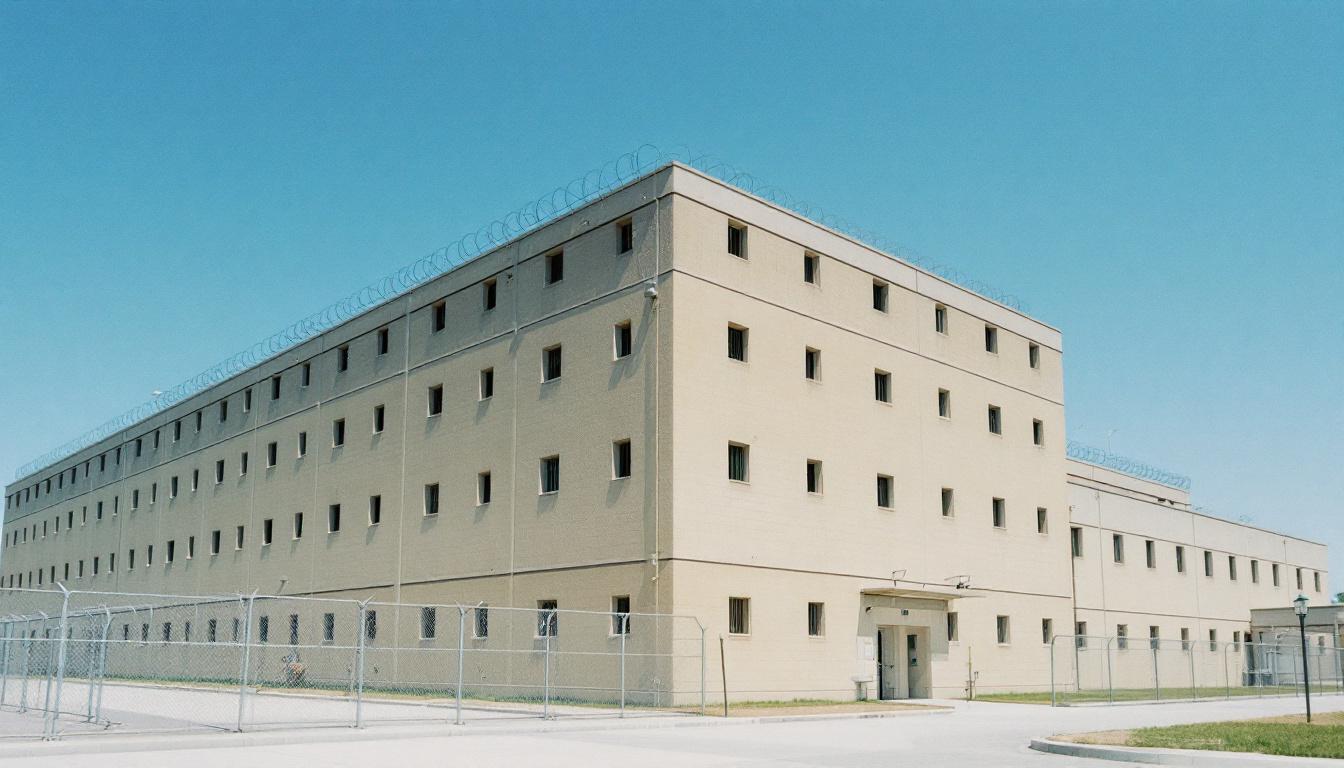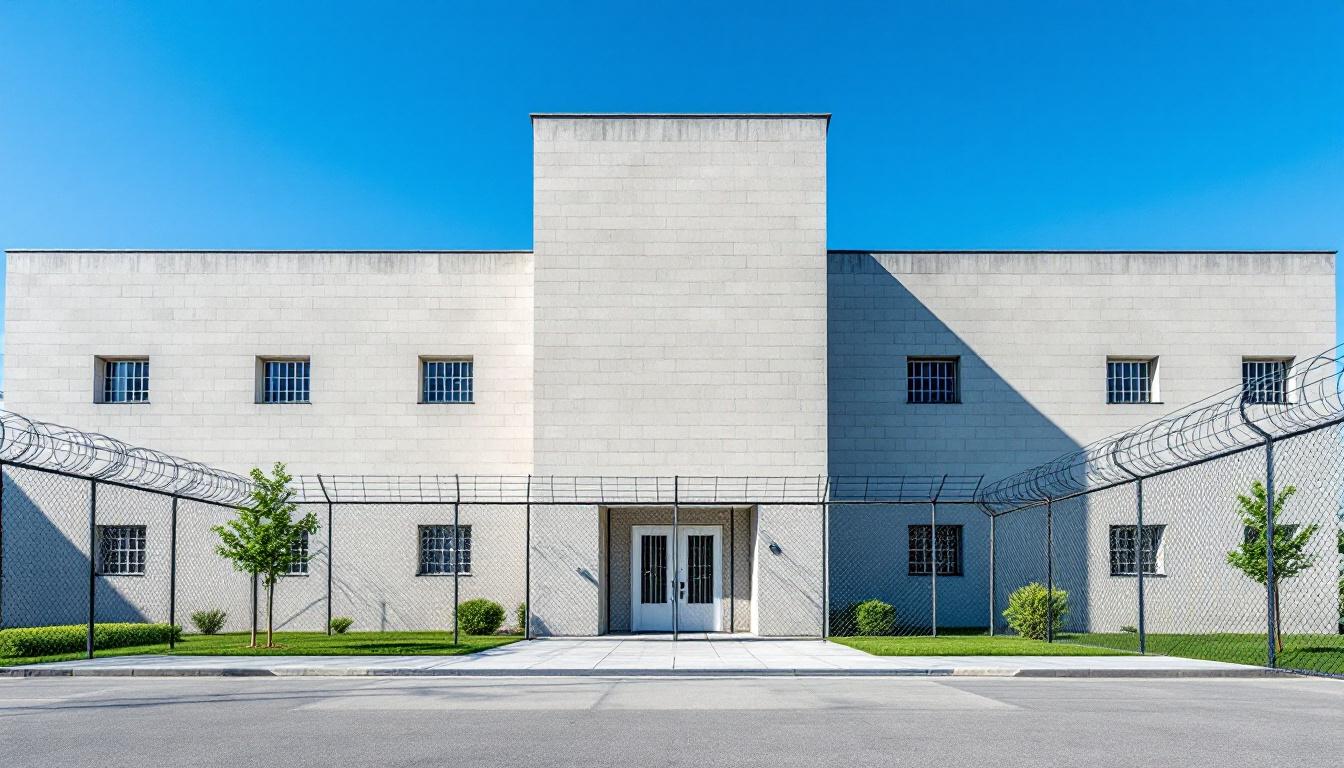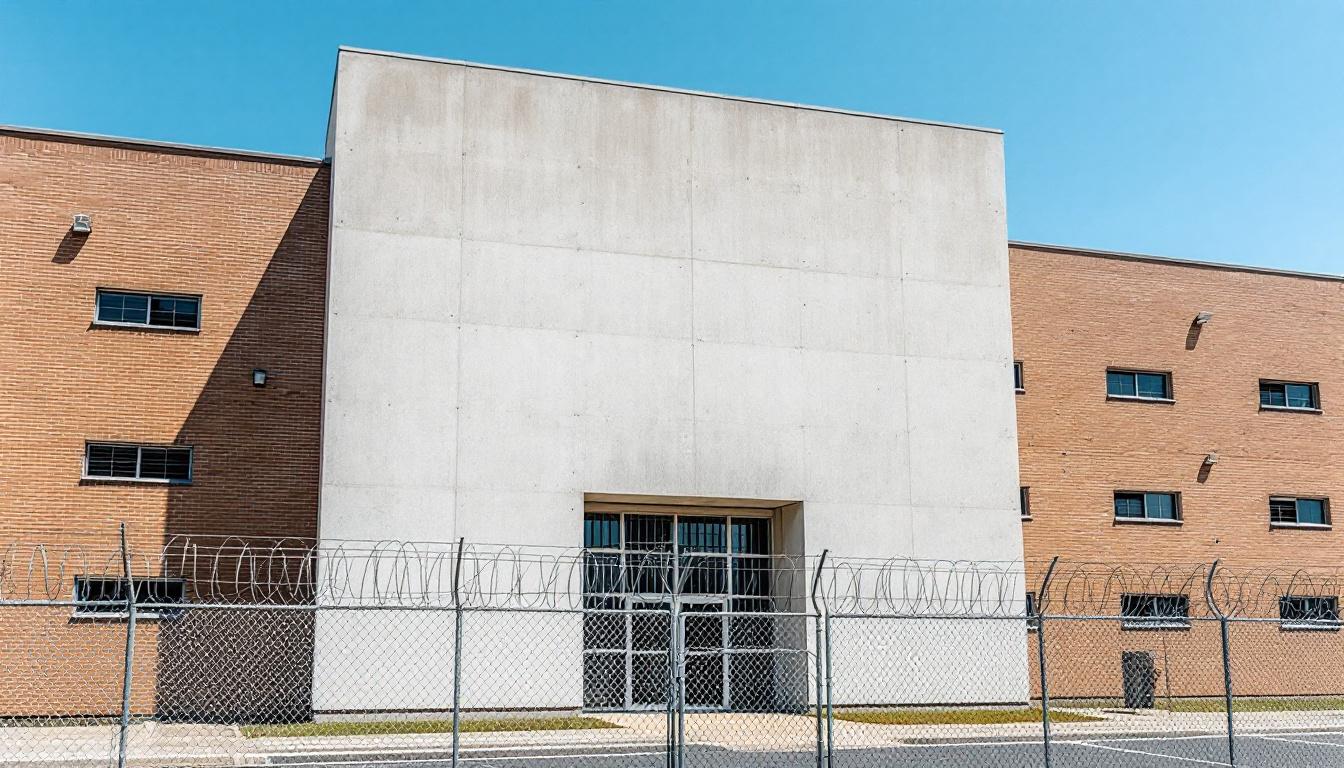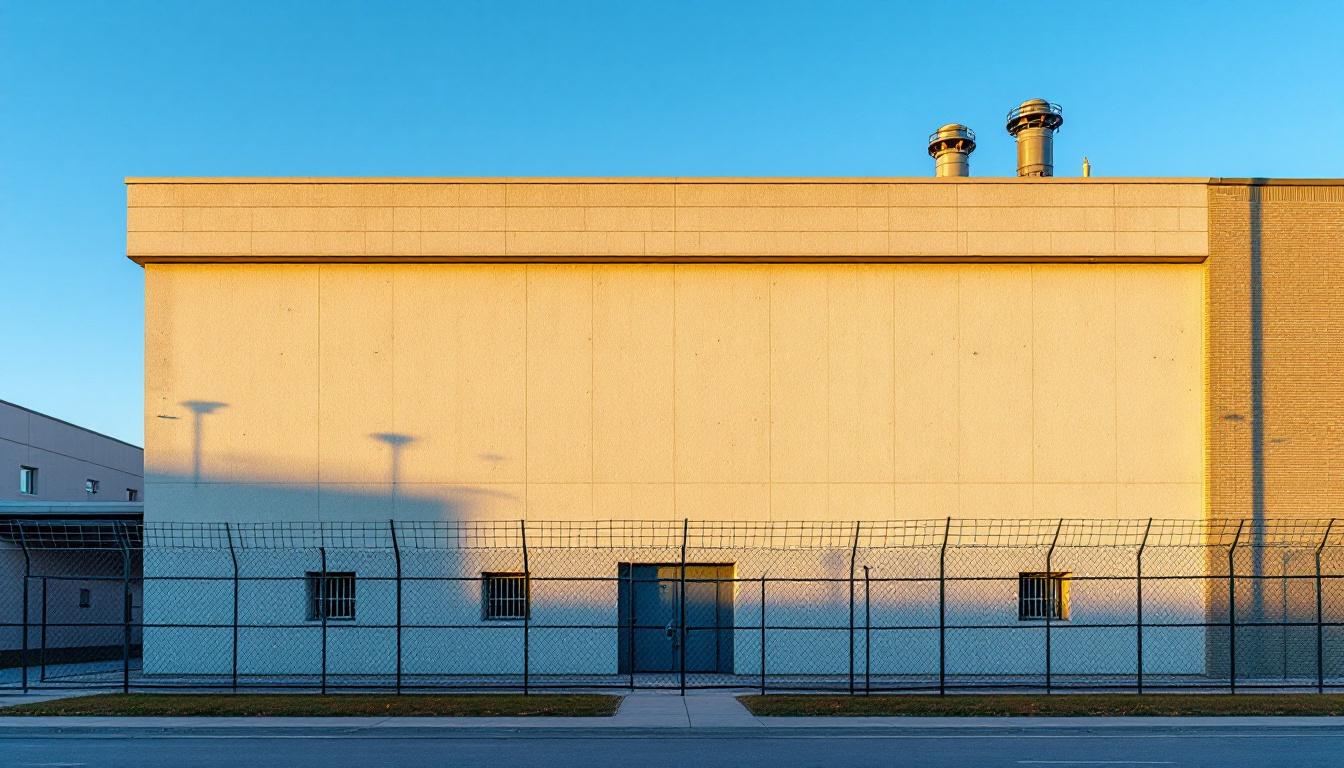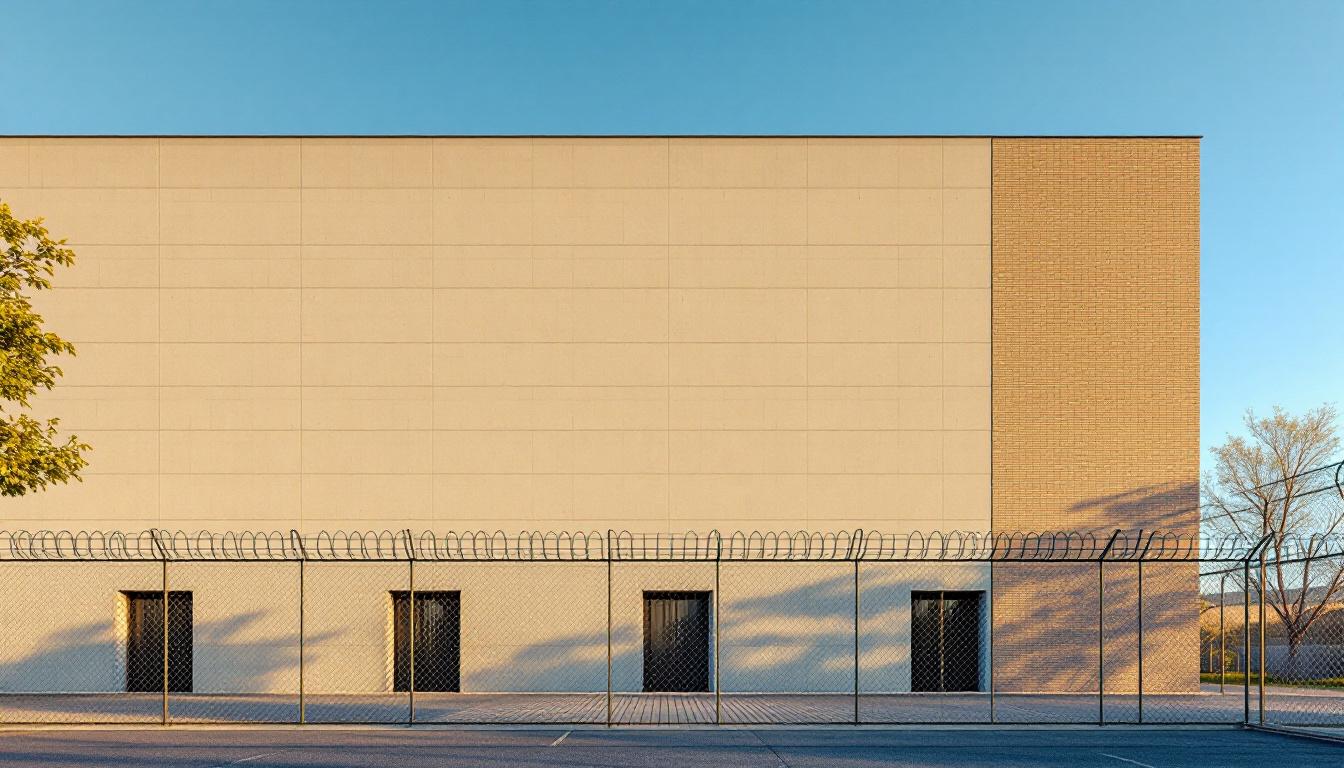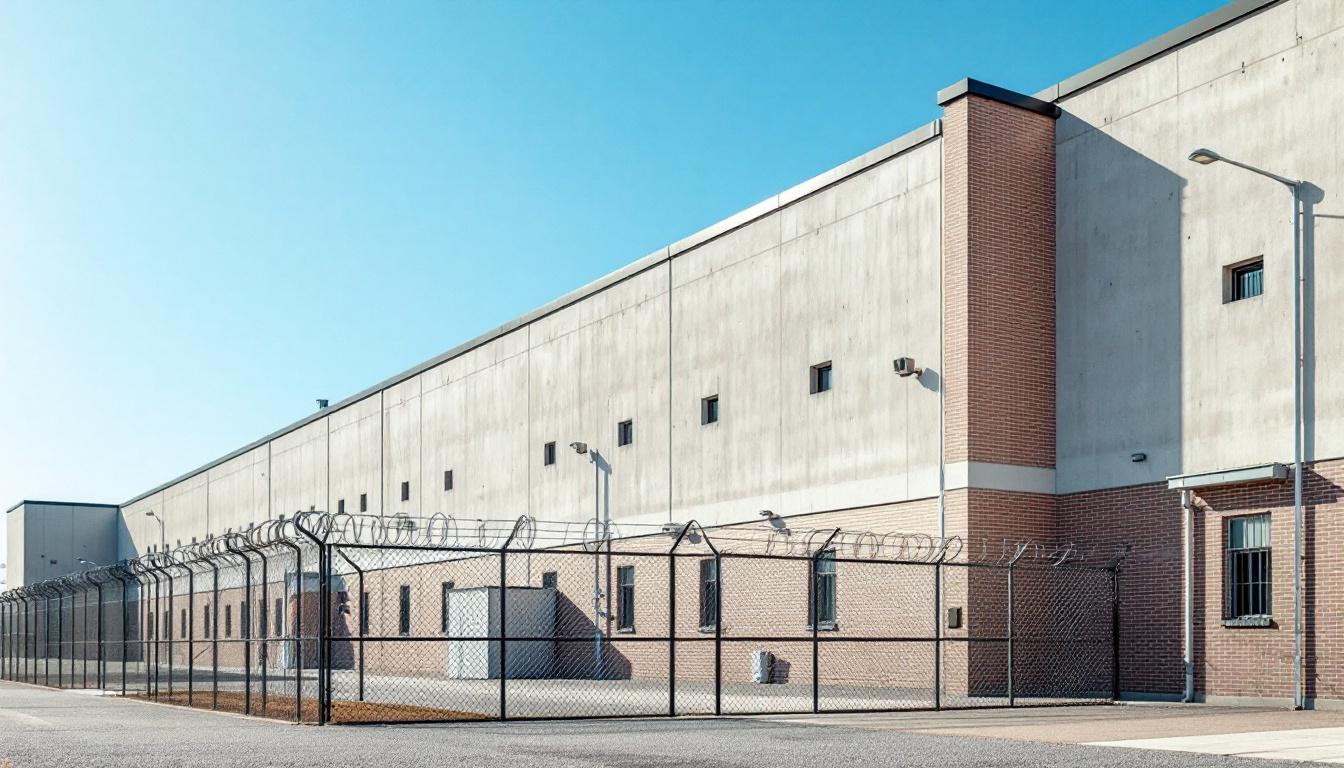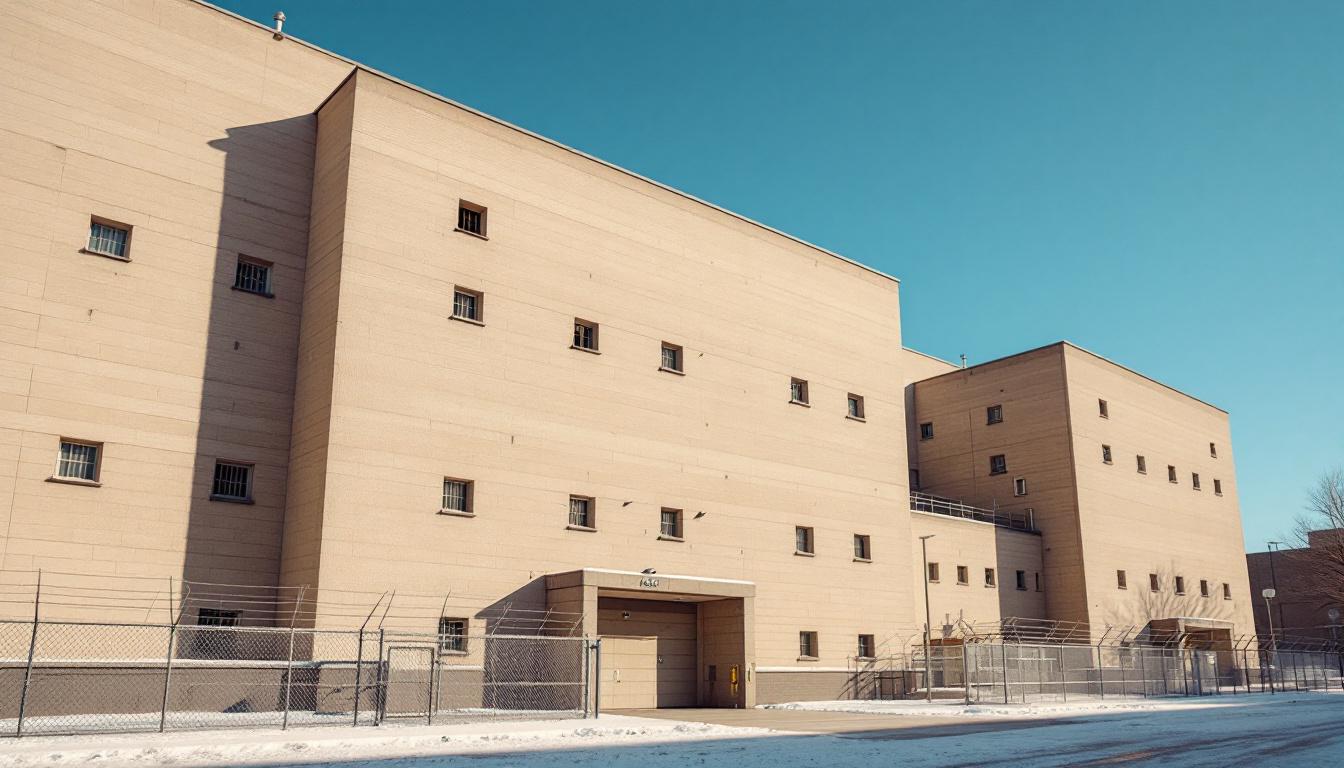
Quick Navigation
How to contact an inmate at Iowa Medical Classification Center Correctional Facility
This comprehensive guide will walk you through how to connect with an inmate at Iowa Medical Classification Center Correctional Facility. Follow the steps below to find an inmate and send letters and photos:
- Search for the inmate using our search tool below
- Create your account or log in to Penmate
- Write your message (up to 6,000 characters)
- Send instantly - inmates receive printed copies daily
Find an Inmate
Search for an inmate to start communicating today
Tip: You can search by first name, last name, or inmate ID number
To contact a person at Iowa Medical Classification Center Correctional Facility start by searching for the person on the official facility website. Perform a search by following these steps:
- Step 1: Enter their first name and last name into the search form and click "Search"
- Step 2: Locate their inmate record
- Step 3: Write down their Inmate ID and any housing information provided
Important! Be sure to enter the person's full name. Nicknames should not be used.
How to Send Messages to Inmates

You can use your phone or computer to send emails, letters, and photos to an inmate. Messages are sent electronically to inmate tablets or kiosks at the facility. If you would like to send a message, start by searching for an inmate at Iowa Medical Classification Center Correctional Facility.
Sending Photos and Postcards

A great way to send love and support to a loved one at Iowa Medical Classification Center Correctional Facility is to send photos and postcards. It only takes a few minutes to send photos from your phone and it makes a huge difference. You can also mail postcards with words of support and inspiration, or design your own postcard for special moments like birthdays and holidays.
Important! Be sure not to send any explicit photos or they may not be approved by the facility. You can also use a photo printing app like Penmate to make sure your photos are printed at the correct size (4x6 or 3x5) and are mailed according to the rules and regulations of Iowa Medical Classification Center Correctional Facility.
Frequently asked questions about Iowa Medical Classification Center Correctional Facility
-
How long does it take to deliver a message?
If you're sending an email message your letter is usually delivered within 24-48 hours. For messages sent via mail you should expect delivery within 3-7 days. All messages will need be approved by Iowa Medical Classification Center Correctional Facility.
-
How much does it cost to send a message to Iowa Medical Classification Center Correctional Facility?
You can send a message free using your phone or mail a message via USPS for the price of a $0.60 stamp and envelope. You can also purchase credits or e-stamps from services starting at $1.99.
-
What services can I use to contact an inmate at Iowa Medical Classification Center Correctional Facility?
Penmate
You can use Penmate to send letters and photos to an inmate from your phone. It's an easy way to stay in touch during your loved one's incarceration. Use the inmate locator to find an inmate's location and contact information, then you can send messages within a few minutes.
Securus messaging
Securus may be another option for communicating with an inmate at Iowa Medical Classification Center Correctional Facility. You can create a friends and family account and purchase credits to send messages. All messages will be reviewed and must be approved by the facility.
JPay
Some county jails and state prisons may support sending messages with JPay. You must register an account with the system, find your loved one, and purchase stamps to send messages. For some locations you can also attach photos.
Smart Jail Mail
You may also check if Smart Jail Mail is available at Iowa Medical Classification Center Correctional Facility. Smart Jail Mail is operated by Smart Communications and has contracted with some state and county jails. After purchasing credits, your messages and photos are sent to the facility, printed out, and then handed out to your loved one.
-
What is the mailing address of Iowa Medical Classification Center Correctional Facility?
Mailing address:
Iowa Medical Classification Center Correctional Facility
2700 Coral Ridge Ave
Coralville, IA 52241
Phone: (319) 626-2391Business hours:
- Monday: 8:00 AM – 4:30 PM
- Tuesday: 8:00 AM – 4:30 PM
- Wednesday: 8:00 AM – 4:30 PM
- Thursday: 8:00 AM – 4:30 PM
- Friday: 8:00 AM – 4:30 PM
- Saturday: Closed
- Sunday: Closed
-
What are the visiting hours at Iowa Medical Classification Center Correctional Facility?
Visiting hours at Iowa Medical Classification Center Correctional Facility vary by housing unit and security level. Generally, visits are scheduled on weekends and holidays, with some facilities offering weekday visits. Contact the facility directly at (319) 626-2391 or check their website for the current visiting schedule. Visits typically last 30-60 minutes and must be scheduled in advance.
-
What items are prohibited when sending mail to Iowa Medical Classification Center Correctional Facility?
Prohibited items typically include: cash, personal checks, stamps, stickers, glitter, glue, tape, staples, paperclips, polaroid photos, musical or blank greeting cards, hardcover books, magazines with staples, and any items containing metal or electronics. Only send letters on plain white paper with blue or black ink. Photos must be printed on regular photo paper (no Polaroids). Always check with Iowa Medical Classification Center Correctional Facility for their specific mail policies.
-
How do I send money to an inmate at Iowa Medical Classification Center Correctional Facility?
You can send money to an inmate at Iowa Medical Classification Center Correctional Facility through several methods: 1) Online using JPay, Access Corrections, or the facility's approved vendor, 2) Money orders mailed directly to the facility with the inmate's name and ID number, 3) Kiosks located in the facility lobby, or 4) Over the phone using a credit or debit card. Fees vary by method, typically ranging from $2.95 to $11.95 per transaction.
-
Can I schedule a video visit with an inmate at Iowa Medical Classification Center Correctional Facility?
Many facilities now offer video visitation as an alternative to in-person visits. At Iowa Medical Classification Center Correctional Facility, video visits may be available through services like Penmate, Securus Video Connect, GTL, or ICSolutions. Video visits typically cost $10-20 for 20-30 minutes and must be scheduled in advance. You'll need a computer or smartphone with a camera and reliable internet connection. Contact the facility for their specific video visitation policies and approved vendors.
-
What identification do I need to visit an inmate at Iowa Medical Classification Center Correctional Facility?
All visitors must present valid government-issued photo identification such as a driver's license, state ID, passport, or military ID. Minors must be accompanied by a parent or legal guardian who can provide the minor's birth certificate. Some facilities require visitors to be on the inmate's approved visitation list, which may require a background check. Contact Iowa Medical Classification Center Correctional Facility for specific ID requirements and visitor approval procedures.
-
How can I find out an inmate's release date?
To find an inmate's release date at Iowa Medical Classification Center Correctional Facility, you can: 1) Use the online inmate search tool if available, 2) Call the facility's records department, 3) Contact the inmate's case manager or counselor, or 4) Have the inmate provide this information during a call or visit. For privacy reasons, some facilities only release this information to immediate family members.
Facility Overview
Contact Information
Iowa Medical Classification Center Correctional Facility2700 Coral Ridge Ave
Coralville, IA 52241
Phone: (319) 626-2391
Official Website

About Iowa Medical Classification Center Correctional Facility
Nestled in the small community of Las Vegas, Iowa, this specialized correctional facility serves as a crucial component in the state's comprehensive approach to inmate healthcare and classification processes. The Iowa Medical & Classification Center operates with a dual mandate that addresses both immediate medical needs and long-term rehabilitation goals, supporting Iowa's broader correctional objectives through evidence-based practices and individualized assessment protocols.
The facility typically functions as a centralized hub where residents receive comprehensive medical evaluations, mental health services, and classification assessments that help determine appropriate placement within the state's correctional system. Healthcare services may include routine medical care, specialized treatment programs, and coordination with external medical providers when advanced care becomes necessary. The center's approach generally emphasizes therapeutic intervention and evidence-based treatment modalities designed to address underlying issues that may contribute to criminal behavior, supporting successful reintegration into the community.
As part of Iowa's integrated correctional network, this Las Vegas facility often serves residents from across the state who require specialized medical attention or comprehensive evaluation services. The center's role in the classification process helps ensure that individuals are placed in appropriate facilities based on their security level, medical needs, and program requirements, ultimately supporting both public safety and rehabilitation outcomes throughout the Midwest region's correctional landscape.
Programs & Services
Therapeutic interventions and comprehensive support services form the foundation of rehabilitation efforts, with mental health services typically addressing the complex psychological needs that many residents face. These initiatives often emphasize a holistic approach to personal development, recognizing that successful reintegration requires addressing both immediate challenges and long-term goals. The facility may deliver specialized treatment programs that focus on behavioral modification and coping strategies, helping residents develop essential life skills while maintaining their physical and emotional well-being.
Educational services play a crucial role in preparing residents for future opportunities, often including basic literacy programs, GED preparation, and continuing education options that help individuals build academic foundations. Furthermore, vocational initiatives may offer HVAC certification training, providing residents with marketable skills in heating, ventilation, and air conditioning systems that can lead to employment upon release. These hands-on learning experiences typically combine classroom instruction with practical application, allowing participants to develop technical competencies while building confidence in their abilities.
Wellness programs often complement the therapeutic framework by promoting physical health and stress management techniques that support overall recovery. Conflict resolution initiatives may deliver structured approaches to communication and problem-solving, helping residents develop interpersonal skills that prove valuable both within the facility and in community settings. The vocational programs typically extend beyond technical training to include job readiness preparation, resume building, and interview skills that enhance residents' prospects for successful employment and community integration.
Daily Life & Visitation
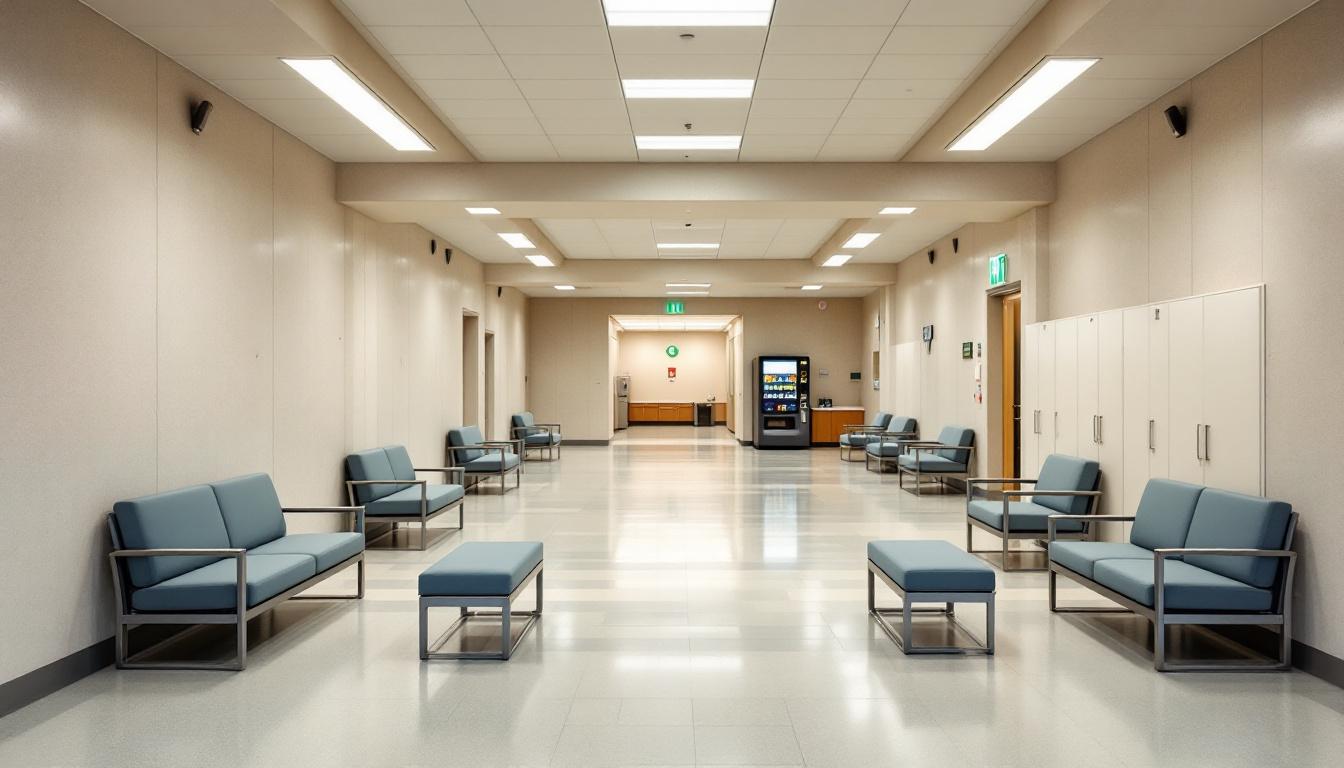
Structured routines now anchor each day for residents, creating predictable patterns that many find stabilizing during their time at the facility. Wake-up calls typically occur in the early morning hours, followed by count procedures and preparation for the day ahead. Residents regularly participate in scheduled meals, work assignments, and various programming activities that deliver consistency to their daily experience. Medical appointments and treatment schedules are woven throughout these routines, ensuring that health needs receive appropriate attention while maintaining the overall structure of institutional life.
Living accommodations generally consist of shared cells or dormitory-style housing units, where residents maintain personal spaces within the facility's guidelines. Each housing area typically includes common areas for television viewing and social interaction during designated recreation periods. Furthermore, the dining experience involves scheduled meal times in communal areas, where residents gather for breakfast, lunch, and dinner prepared by institutional food services. Personal property allowances usually permit residents to keep approved items such as photographs, letters, and commissary purchases that help maintain connections to life outside the facility walls.
Although security considerations shape many aspects of daily life, residents typically have access to recreational opportunities including outdoor exercise periods, library services, and various educational or vocational programs. Visitation policies generally allow for regular contact with family members and approved visitors during designated hours and days. Communication options may include monitored telephone calls and correspondence, helping residents maintain important relationships during their incarceration. Medical care routines often involve regular check-ups, medication distribution, and specialized accommodations for residents with chronic health conditions or disabilities, ensuring that healthcare needs are addressed within the structured environment.
Ready to Connect?
Start communicating with your loved one today
Search for an Inmate
